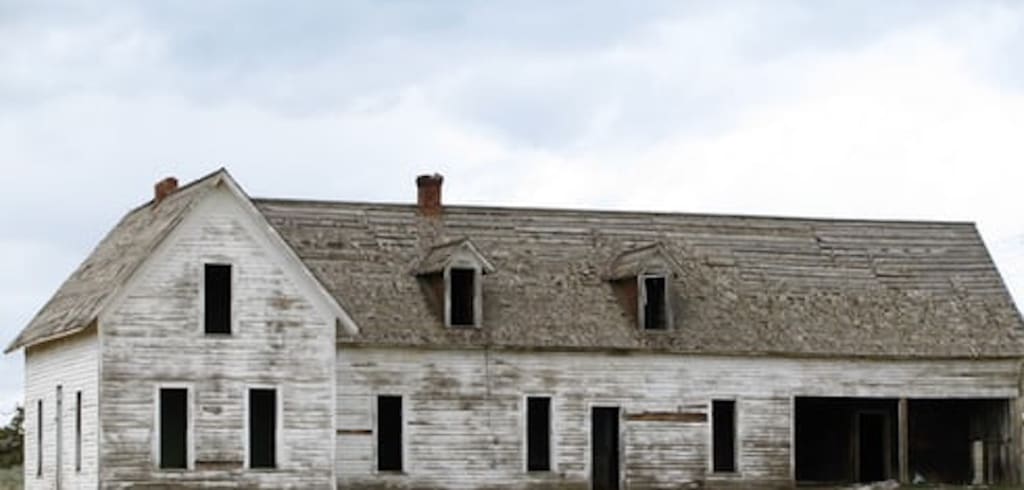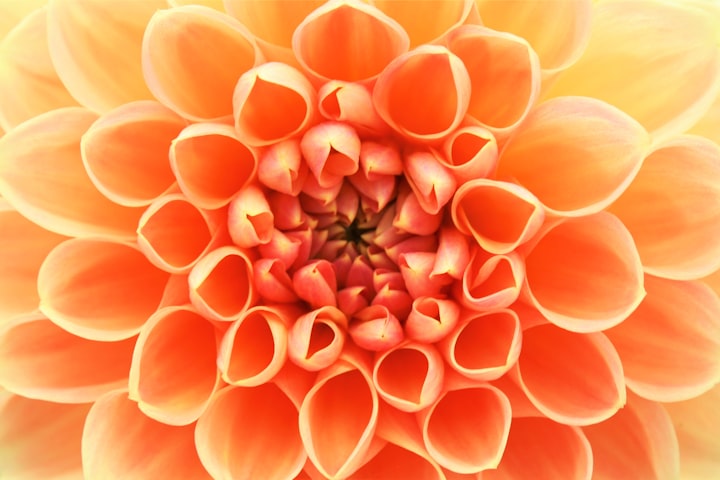
I placed one foot in front of the other in yet another plodding step. Was this the ten-thousandth step? Or the hundred-thousandth? When I started my journey, I planned to count each forward step as a measure of progress, something positive to outweigh the bleak, lifeless landscape. But I’d lost count hours—days—ago. About the time I’d eaten the last crumbling remnants of the peanut butter crackers pilfered from a gas station mini-mart.
With a stomach too empty and tired to growl, I was too weary to look around so I stared down at my grubby toes. The overnight rains left the path muddy and slippery. After many slips and falls I learned to watch my feet. Before everything—before the catastrophe—I’d have been striding confidently, head high, watching the trees and listening to the birds. Now, I didn’t hear anything but the wind.
Had it only been two weeks? Or three? I lost count of days as well as steps as I struggled to find a way back to my family home. Whenever, it started with dark ominous orbs that appeared in the skies over every major urban area. They hadn’t bombed us or used ray guns or heat weapons or anything else. They sat inert in the upper atmosphere with motives we couldn’t begin to guess. What we didn’t know—not at first anyway—is that while parked overhead, they—whoever they were—released billions, trillions of nearly invisible fungal spores into the air to travel all over the planet.
I worked in the USAMRIID labs in Frederick, MD, outside Washington DC—the U.S. Army’s Medical Research Institute of Infectious Diseases—so my group was one of the first to realize the scope of the disaster. My group specialized in fungi, and my particular specialty the Massospora fungus—the one the popular press called the zombie fungus. Massospora and its similar cousins ate insects entire bodies from the inside out, leaving only their tiny brains. Then it took over the brain and commanded these shells of insects, with all interior organs eaten away, to keep moving and spread its spores to other insects. A true walking-dead zombie insect that Guillermo Del Toro could have turned into a horror-scape. But of course, he didn’t have to. Those triply damned black orbs made Earth a real-life horror.
The tiny spores were swallowed or inhaled or absorbed through the skin of virtually every living thing on Earth. The spores attached to the DNA of their targets—and within hours, that living thing became a dying husk. Animals. Vegetables. Trees. Flowers. Seaweed. Fish. Everything.
Especially people.
All dead. Every living thing on the planet—dead. No food to eat because the spores destroyed all organic entities. No water safe to drink because the spores contaminated it. Opening a can of food or a bottle of water gave no assurance of safety because those multiply damned spores infected the containers almost as soon as I opened one. Literally, there was nothing left to live on.
So why did I still stumble along? I didn’t know. I only knew I needed to keep moving. One step after another.
I started my journey in my car, but quickly discovered that the abandoned cars and trucks made even the interstates impossible. Back roads were a little better, but somewhere around the northern Virginia border, my car ran out of gas and with no electricity available to pump gas, I gave up and continued on foot.
At first, when every other person and animal and plant succumbed to the spores, I thought my survival a blessing. If one lived, surely others still survived, right?
Wrong.
I spent a handful of useless hours searching every place I passed to try to find a single other living entity. Useless. Nothing moved but me.
Not that my survival would last much longer. With nothing left to eat or drink safely, I surely would be the final victim of this horror.
Step. Stumble. Shamble. Step.
My progress remained pitifully slow. I didn’t quite know how far I still had to go. My destination was the hills of western Virginia, where my family owned a ramshackle farm. My instincts pushed me to go back to my roots. I knew what I would find there, of course. More death. But the place still held the illusion of safety in what remained of my mind.
# # #
I think I blanked out for a while. When I came to my senses again, I still shuffled forward. I was near the top of a small rise. When I finally struggled up the slight incline, I spotted it.
No joy came with the seeing, however. The family farmhouse—or what remained of it—was off to the left, perhaps a quarter-mile away. But the house had burned into smoke and black ashes. Hard to tell at this distance but maybe the propane tank exploded somehow.
Familiar shelter still existed, though. The barn still stood only about a hundred yards away at the foot of this hillock. Shelter. Reassurance. Familiarity. This rundown old barn guarded all I possessed of any of those concepts. My brother and played innumerable hours in the shadowy coolness of this building. Where we’d done our chores. Where I ran to hide when crushed by childhood catastrophes. And where my mom ultimately found me to bring me back to life with her love. That stopped when I was eleven and she and my brother died in a car accident. Then the barn offered only hard work and loneliness. But until that time, this rickety building provided my refuge.
My stumbling steps moved me forward until I tripped over a rock and went flying head over heels down the slope. When I finally rolled to a stop, the barn stood only a few more steps away. Steps I couldn’t take because I couldn’t seem to make myself rise to my feet.
Instead, I crawled. Inch by inch until I reached the open door of the barn. Gradually I got myself inside and collapse on the cool dirt floor. Home. For the first time in days I let myself rest.
# # #
When I woke, I was too weak to try to do more than sit up, and shift a little so I leaned against the barn door. Cool night air trickled through the comforting darkness in the barn. Outside, stars blazed in the sky. No light pollution here to dim their sparkle. I sat through the remaining hours of the night, watching the stars slowly gyre above me. They were so beautiful. I longed to be up with them in their calm serenity, rather than here, waiting for the final spark of life to desert me.
As dawn crept in over the hills, I simply sat. With no food in more days than I could count, the urgency that sent me three hundred or so miles to this home place disappeared.
Finally, with the crisp morning sun spotlighting me, I looked down at myself for the first time in what felt like weeks. The large gaping hole in my torso held no surprise. I saw straight through to my spine. All my interior organs—heart, lungs, stomach, intestines, liver, everything—were gone. I retained little more than a skin-covered skeleton with a sort-of functioning brain.
This fungal invader, like Massospora, had eaten me alive.
But why? And why me? Out of the billions of people on this world, why did I persist, pushing forward in this walking dead state? And why the push for me to return to my childhood home, to this barn?
I didn’t know. Would never know. But as the cloudy functioning of my brain fizzled to a trickle, as what remained of my body gradually lost its balance and slid sideways to lie on the ground, I discovered a splash of color for the first time in days. In a protected crease between inside and outside, a small green plant with a bright yellow flower lived.
A dandelion.
It took every bit of willpower remaining to slide my arm so my skeletal fingers almost touched the brilliant green and yellow, but I drew back before I made contact. I couldn’t risk contaminating it with my touch, though how one lonely plant survived the spores in air and water, I couldn’t imagine. Instead, I pulled my arm away and simply enjoyed as its cheerful golden head followed the arc of the sun across the sky.
I was dead, but this hardy weedling lived. Like the embodiment of hope for a future on this ransacked world, it lived.
And as the last spark of consciousness trickled from my brain, for the first time, I smiled.






Comments
There are no comments for this story
Be the first to respond and start the conversation.